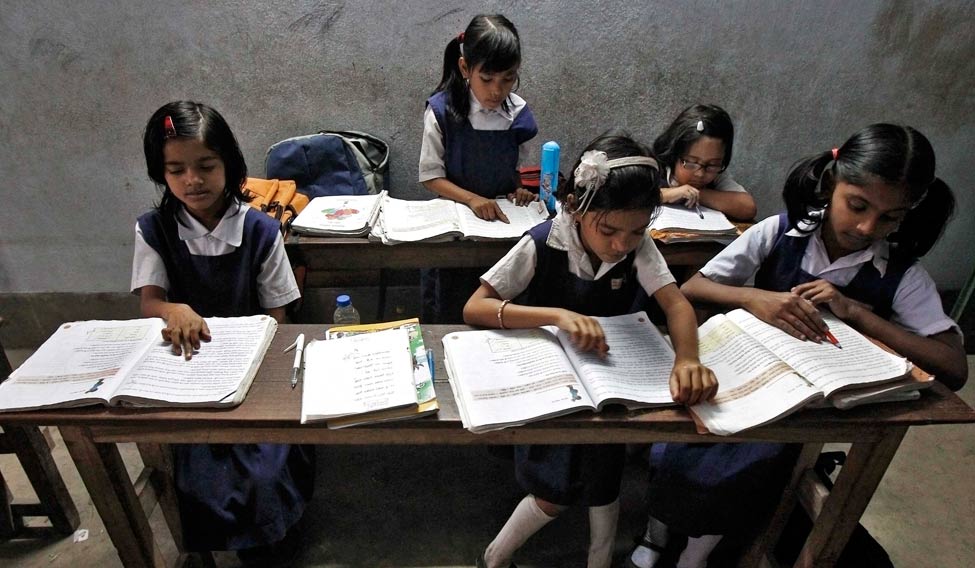Rajasthan education minister, Vasudev Devnani, is reportedly supporting a proposal to teach children an alternative version of history. Devnani claimed that in the battle of Haldighati in 1576, Maharana Pratap defeated Mughal emperor Akbar, and not the other way round, as the history books suggest. “We have maintained all along that Maharana Pratap has not been accorded his due in history,” he said on Thursday.
State health minister Kali Charan Saraf agreed that students learnt a “distorted version of history” all these years.
But, historians claim that Akbar's army, led by Man Singh, had won the battle. Maharana's army was well-prepared, but a rumour led to the retreat of the Rajput army. Akbar then went on to capture Rajput forts.
If the proposal becomes a reality, students would be learning skewed, incorrect history. It would add to the long list of misleading or incorrect information in Indian textbooks.
Besides misrepresenting historical facts, it also presents ethical problems. Here's a round-up of a few recent controversial instances:
No Nathuram Godse, Jawaharlal Nehru, Nelson Mandela and John Keats
Rajasthan is notorious for its controversial textbook material. According to reports, Class 8 textbooks were “restructured” by a review committee in 2015. The committee omitted mentions of some important names in history. The textbook refers to the Indus Valley Civilisation as the Sindhu Ghati Culture. Aryans are “natives” of India, though historians say that Aryans migrated to India. Sarojini Naidu and other leaders of the Indian National Congress have no mention. On the other hand, Jawaharlal Nehru's role in the freedom struggle is nipped. Students won't learn about Nathuram Godse, Mahatma Gandhi's assassin, according to reports.
Foreign poets like John Keats and William Blake were replaced with “regional” poets. Plans to delete chapters on Nelson Mandela and his efforts were also discussed last year.
“Put a small kitten in each box, close the boxes.”
This. Is. Just. Unbelievable.
— Farhan Akhtar (@FarOutAkhtar) February 9, 2017
From a Class IV textbook on Environmental Studies. Anyone responsible for this reaching the kids desks? pic.twitter.com/NJ2FWkwO0O
In a Delhi school, a Class 4 textbook on Environment studies, called Our Green World, has a chapter on living beings. It describes a bizarre method to experiment if living things need air to breathe. It suggests, “Take two wooden boxes. Make holes on lid of one box. Put a small kitten in each box. Close the boxes. After some time open the boxes. What do you see? The kitten inside the box without holes has died.” On the next page, illustrations depict the alive and dead kittens in two boxes.
According to the publishers, Millennium Booksource, such an example “shouldn't be there". Its director Dinesh Gupta was allegedly unaware of its existence in the book.
Dowry for “ugly and handicapped” girls
A Class 12 textbook on sociology (under the Maharashtra State Education Board) has a lesson on dowry. It states 'ugliness' as one of the reasons why the girl's family has to give dowry at the time of marriage. The text reads: “If girl is ugly and handicapped, then it becomes very difficult for her to get married. To marry the girls bridegroom and his family demand more dowry. Parents of such girls become helpless and pay dowry.” It adds that this leads to the rise in the practice of the dowry system.
Both professors and students condemn this chapter and call it “rubbish”. The chapter blames the bride's family for perpetrating the dowry system, saying that they become criminals “to arrange for dowry”. Reports claim that state education minister Vinod Tawde said that the chapter will be withdrawn. “I feel that the board has tried to reflect social reality in this chapter,” he said, adding that if the media “has objections” they will consider revising the lesson.
“Fair and rich girls”
12 celebrities endorse #fairnessproducts. They make billions. What's the #probability of me turning into a fair-skinned billionaire? pic.twitter.com/nBnJQozepa
— Jyoti Gupta (@jyotigupta) February 8, 2017
In a post on The Colo(u)rism Project blog, activist Jyoti Gupta wrote about a math problem in a textbook published by S. Chand Publications in Lucknow. The question reads: “A class consists of 80 students, 25 of them are girls and 55 boys. 10 of them are rich and 20 are fair complexioned. What is the probability of selecting a fair complexioned rich girl?”
The math problem in the Class 12 textbook propagates not only discrimination based on fairness but also classism, she says. “It also gives a nod to racist, and colourist beliefs by categorizing light-skinned women,” writes Gupta, “It encourages the erasure of women (and men) with dark skin, and directly impacts their still-developing self esteem and confidence.”
More world history, less Indian
Last year, Tripura government eliminated parts of Indian history in Class 9 history textbooks. Apart from the mention of Mahatma Gandhi and his fight for India's freedom, no other revolutionary or important events were found. Instead, more emphasis was given on French and Russian revolutions, Nazism, and the history of cricket and agriculture. While teachers recognised the omission and called it “flawed”, officials from the state's Board of Secondary Education claimed that the textbook followed NCERT guidelines.







